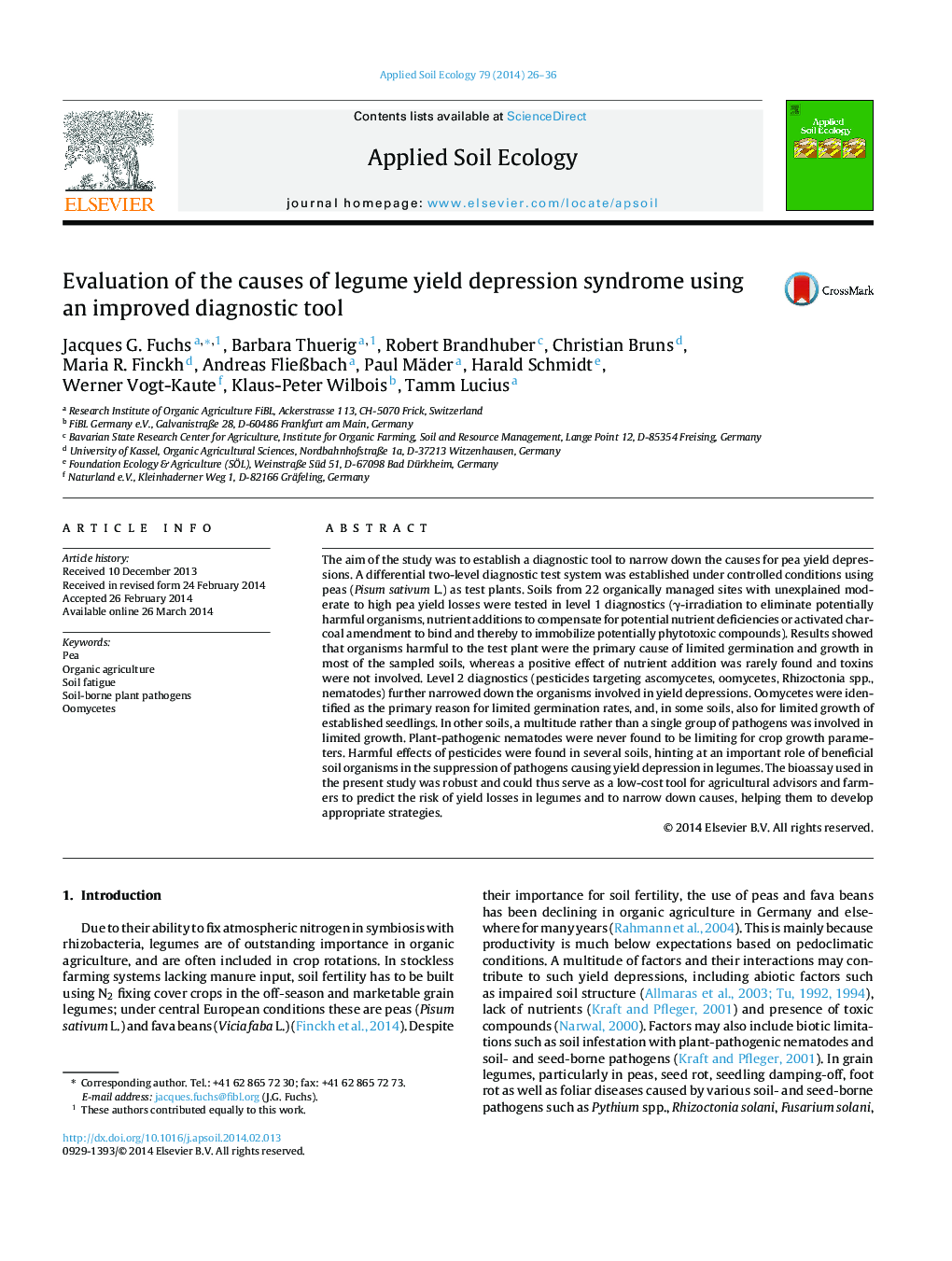| کد مقاله | کد نشریه | سال انتشار | مقاله انگلیسی | نسخه تمام متن |
|---|---|---|---|---|
| 4382232 | 1617804 | 2014 | 11 صفحه PDF | دانلود رایگان |
• Unexplained yield depression is a main issue in organic legume production.
• A robust test system to narrow down causes of yield depression was established.
• Soils from 22 sites with unexplained pea yield losses were evaluated.
• Biotic causes were identified as the primary cause of yield depressions.
• Either oomycetes or a multitude rather than a single group of pathogens was involved.
The aim of the study was to establish a diagnostic tool to narrow down the causes for pea yield depressions. A differential two-level diagnostic test system was established under controlled conditions using peas (Pisum sativum L.) as test plants. Soils from 22 organically managed sites with unexplained moderate to high pea yield losses were tested in level 1 diagnostics (γ-irradiation to eliminate potentially harmful organisms, nutrient additions to compensate for potential nutrient deficiencies or activated charcoal amendment to bind and thereby to immobilize potentially phytotoxic compounds). Results showed that organisms harmful to the test plant were the primary cause of limited germination and growth in most of the sampled soils, whereas a positive effect of nutrient addition was rarely found and toxins were not involved. Level 2 diagnostics (pesticides targeting ascomycetes, oomycetes, Rhizoctonia spp., nematodes) further narrowed down the organisms involved in yield depressions. Oomycetes were identified as the primary reason for limited germination rates, and, in some soils, also for limited growth of established seedlings. In other soils, a multitude rather than a single group of pathogens was involved in limited growth. Plant-pathogenic nematodes were never found to be limiting for crop growth parameters. Harmful effects of pesticides were found in several soils, hinting at an important role of beneficial soil organisms in the suppression of pathogens causing yield depression in legumes. The bioassay used in the present study was robust and could thus serve as a low-cost tool for agricultural advisors and farmers to predict the risk of yield losses in legumes and to narrow down causes, helping them to develop appropriate strategies.
Journal: Applied Soil Ecology - Volume 79, July 2014, Pages 26–36
